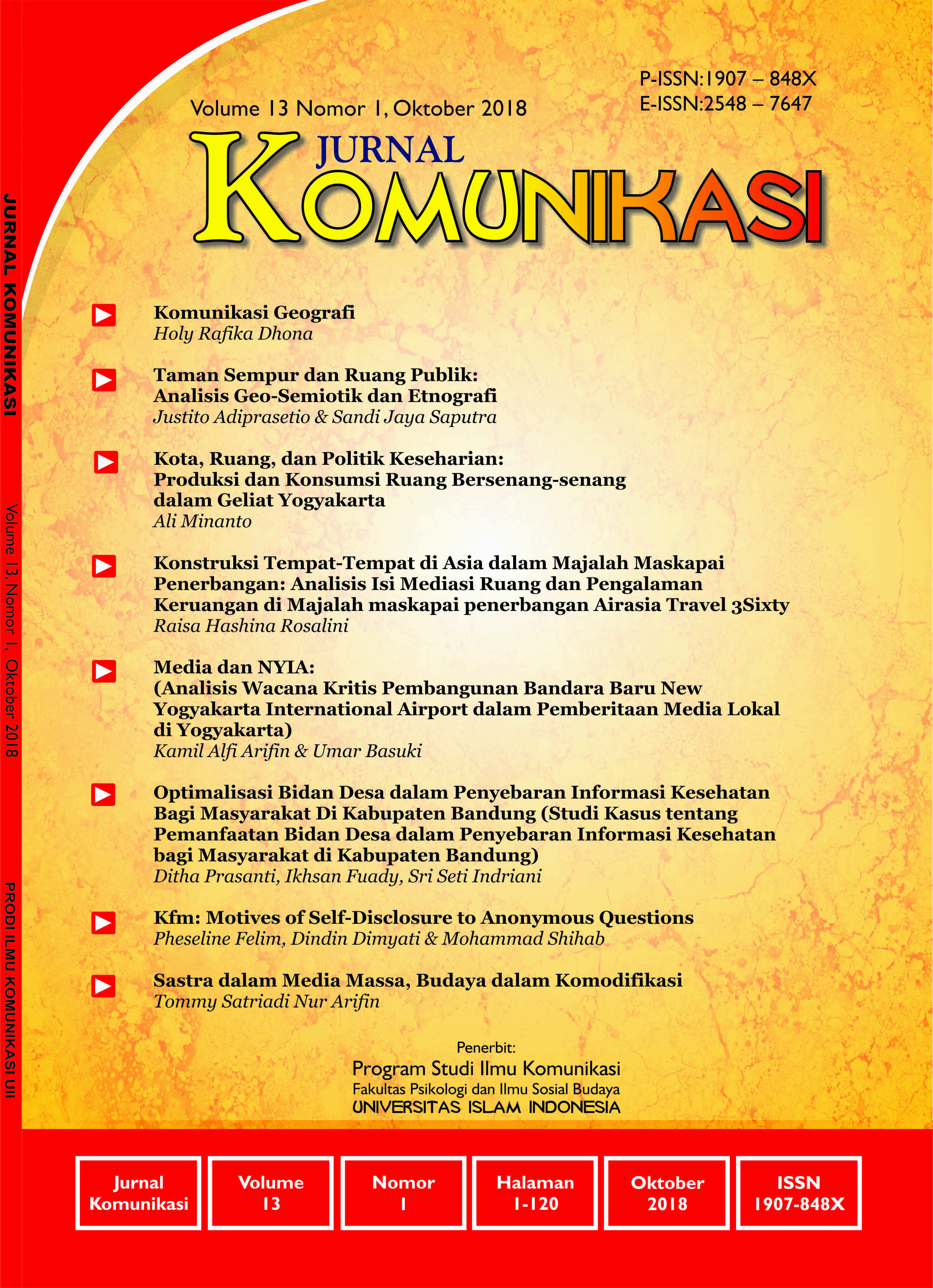Main Article Content
Abstract
Self-disclosure may happen greatly in social media because nonverbal cues were reduced and their anonymity feature, while they also control their content distribution to certain boundaries based on their own privacy management. The purposes of this research are to know motivation of ASKfm users to disclose their personal information to anonymous questions and how privacy rule criteria such as gender, culture, and context make them want to disclose their personal information to anonymous questions. By using in-depth interview, data were collected from three males and three females aged 18 to 24 years old. They had ASKfm accounts, had answered anonymous questions at least five times, had minimum 100 likes in total, and had revealed personal information to the anonymous questions. ASKfm involved personal evaluation towards rewards and costs received by the users. Participants were motivated to disclose their personal information to anonymous questions to get enjoyment by receiving and answering many anonymous questions as well as relationship building. The motivations indirectly caused self-presentation in which some participants promoted their ASKfm accounts in other social media to get more questions. Collectivistic participants received benefit on enjoyment, while individualistic participants who received benefit on relationship building and maintenance. Participants were more careful in managing disclosures because they were aware of possible risks and possibility of widely personal information distribution to unknown publics by filtering the questions rather than changing the Privacy Settings.
KEYWORDS: anonymity, anonymous questions, ASKfm, motivations, privacy management, self-disclosure
Article Details
Authors who publish with this journal agree to the following terms:
- Authors retain copyright and grant the journal right of first publication with the work simultaneously licensed under a Creative Commons Attribution License that allows others to share the work with an acknowledgement of the work's authorship and initial publication in this journal.
- Authors are able to enter into separate, additional contractual arrangements for the non-exclusive distribution of the journal's published version of the work (e.g., post it to an institutional repository or publish it in a book), with an acknowledgement of its initial publication in this journal.
- Authors are permitted and encouraged to post their work online (e.g., in institutional repositories or on their website) prior to and during the submission process, as it can lead to productive exchanges, as well as earlier and greater citation of published work (See The Effect of Open Access).




